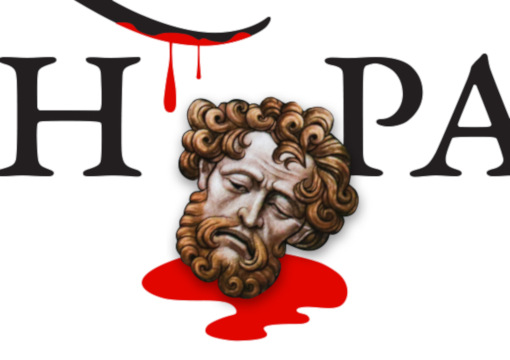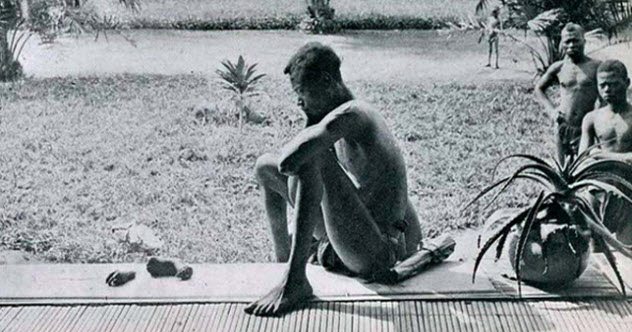
This is Part II of an interview with Joseph N. Abraham, author of the remarkable book Kings, Conquerors, Psychopaths: From Alexander to Hitler to the Corporation. Part 1 of the interview is HERE. Here’s TMV’s review of his book, followed by Part II of the interview, in which he offers some observations about America’s political scene.
Some political observers and historians feel that authoritarianism, like a phoenix rising from the ashes, is making a comeback in the United States and in Europe after being discredited and (in part) defeated during World War II. The questions are always: how does that happen? Is it the strength of personalities, or ideologies that become unstoppable? Where did it start and can’t we be comforted by all the powerful Kings and conquerors throughout history?
In his must-read, can’t-put-it-down book Kings, Conquerors, Psychopaths: From Alexander to Hitler to the Corporation Joseph N. Abraham provides a fresh take on these and other questions, backing it up with solid (often shocking) research that concludes we can’t just blame authoritarians but those who follow, obey, and emulate them. It is virtually in humanity’s genetics. He convincingly makes (and documents) the case that despite often romantic images, kings and conquerors were vicious criminals — and the fact the they were psychopaths, narcissists, and sadists became whitewashed, almost in a form of mass hypnosis. Much of what they did and actually were like somehow vanished from cultural perceptions over time.
Abraham is an emergency medicine physician who has spent years seriously thinking about and meticulously documenting the genesis of how humanity nurtured and submitted to inhumanity (those disobeying were murdered and those conquerors defated were often hideously butchered or sold into slavery) during mankind’s 10,000 year path. Kings, conquerors, psychopaths, narcissists were (and are) masters of manipulation. And, he argues, corporations often fit the same mold. He opens with the My Lai massacre. He not only raises these issues but fleshes them out with shocking facts about the degree of murder, sadism, gore, and lack of empathy. The book is written in a lively, thoroughly researched and well-thought out style (it is not written like a blog post, nor does it read like someone who is vomiting up cliches and generalizations after watching their favorite political entertainment media polarizer). The term “must-read” has been soooooo overused. But Kings, Conquerors, Psychopaths is a must read..must own..and, most of all, a must ponder.
Part II of interview:
4. Expand a bit on one of your points: that there is a romanticism around kings and conquerors but they were actually butchers.
JA: Kings could have not been anything but butchers. There is simply no way that one man (or occasionally, one woman) steps forward, and compels millions do his bidding, unless he backs up his position with brutal and lethal force. That should be obvious, but it isn’t. Instead, we believe that everyone followed the king because he was wiser and better than everyone else. But that fairy tale is the rationale the king gave us, and anyone who questioned it, anyone who said the king was personally, intellectually, and ethically naked, was executed.
We always knew that brutal force backed up the king’s power: people were hung, beheaded, or even drawn and quartered, for stealing a loaf of bread, for hunting in the king’s forest, for disagreeing with the king and his clergy, or even for speaking ideas that did not match the accepted dogma. But we rationalize away all of that as kingly virtue: he was wiser than we were.
This is in part because the king’s chroniclers also lived under lethal threat, and so they wrote whatever the king wanted them to write. History is necessarily a cumulative discipline, and so historians today perpetuate the earlier myths and fairy tales, even though they have all read the descriptions of horror. We still live with our fairy tales.
5. How and when did you decide to write this book and why? And what kind of research did you do to do it? How long did it take to write this book?
The book was over two decades in the making, although for most of that time I had no idea it would be a book. After years of mulling over these ideas I began jotting them down, and some years after that, I began massaging my notes into chapter-like categories.
For research, I certainly read a lot of books and journal articles, but a lot of the work was done electronically. I had access to the library and databases at the University of Louisiana, but I did not have an office on campus, so it made quick reference to paper resources cumbersome.
Fortunately there are a plethora of on-line resources, including the Gutenberg Project; classical resources at MIT, Tufts, and others; Internet searches; and Google Books (publishers who do not allow Google Books to index the entirety of their lists are making an enormous mistake; they are missing a lot of potential citations). So I was able to get by.
6. One of the most gripping parts of your book is your exploration of history which shows that the brutality of the 20th century – particularly as seen in Nazi German and Stalin’s Gulag – was derivative of a time when it was the norm. The details you provide about some conquers and kings about their viciousness and mercilessness are utterly shocking. Above, you explain why you think so much of this has seemingly become forgotten or ignored for so many years. Do you find historians are more diligent now?
JA: Intellectually, we have not changed as much as we think. I see this in my own areas of medicine and science. When I compare modern controversies to the prejudices of earlier thinkers, my colleagues often respond, “Oh, but we’re so much more open-minded today.” In my less charitable moments I reply, “How, and why? When did our educational paradigms change?” Our basic approach to education has not shifted significantly since the Middle Ages: memorize, don’t analyze; conform, don’t question. We still teach our students monumental truths, but today we simply call them ‘science’ instead of ‘theology’, and we cannot see that scientists can be as inflexible as theologians. Thomas Kuhn goes into this at length, pointing out that ordinary science is clerical and dogmatic, and that students of science have to be disabused of their scientific training before they are ready to study the philosophy and history of science.
Every generation thinks it has cornered truth, only to see the next generation overturn ideas that were considered monoliths. How much of what we are sure is true today will be laughable in 100 years? 1,000 years? Or even 1,000,000 years, assuming that we survive that long?
If this is a problem in the sciences where a hard proof is possible, then how much more of a problem must it be in the arts and humanities? Yes, historians are very diligent in their work; the problem is, diligence alone doesn’t cut it. We also have to be willing to challenge what we have been taught. Which is one of the points of the book: in general, we aren’t willing.
7. One reviewer claimed it was “(Donald) Trump on every page.” What’s your reaction to that and why? In fact, your chapter on The Authoritarian Personality seems to describe Trump, as it does other strongmen throughout history.
JA: Most national-level politicians are probably narcissists. The only recent president I can think of who did not seem to have a strong narcissistic streak was also one of our least effective, Jimmy Carter. So perhaps narcissism and effectiveness are related, because politics is a game of big egos and sharp elbows. Jimmy Carter either did not understand narcissism, and/or he refused to play the ugly games that statecraft demands.
Donald Trump is what his supporters claim he is: an unpolished, unvarnished politician. The problem is, in a government and a world overwhelmingly led by narcissists, polish and varnish are critical.
As is compromise. The effective politician knows how to tell people what they want to hear, and knows when to cut his losses. Bill Clinton’s critics call him ‘Slick Willie’, and I think they are close to the truth. Clinton was the master politician, a combination of narcissism, salesmanship, and pragmatism. If he had been a Republican instead of a Democrat, the current opinions of him would probably all flip.

The Cost of Conquest, The Belgian Congo, 1904: Nsala of Wala looks at the severed hand and foot of his five-year-old daughter.
The third and final part of this interview will be published tomorrow.
The book:
On Kindle:
Joe Gandelman is a former fulltime journalist who freelanced in India, Spain, Bangladesh and Cypress writing for publications such as the Christian Science Monitor and Newsweek. He also did radio reports from Madrid for NPR’s All Things Considered. He has worked on two U.S. newspapers and quit the news biz in 1990 to go into entertainment. He also has written for The Week and several online publications, did a column for Cagle Cartoons Syndicate and has appeared on CNN.
















